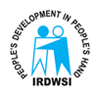ORISSA FLOOD CRISIS PHASE OPERATION
Activities Undertaken and its Impact Coordination
Activities Undertaken and its Impact
The Emergency phase was over, the only problem is that the livelihood issues who lost their crops, lands ( sand casting and water logging) fishing boats and nets, weaving materials find difficult to earn a secured income and food. It was very important to address the issue of farmers who lost their crops by immediately providing seeds for next crop, supply of boats, nets and weaving materials, however, these needs were included in the Post Crisis Proposal. This will ensure food and income security in the phase. The assistance and accompaniment will be continued from the present kharif cultivation to rabi (winter and summer crops). As we have been informed by ACT that some money is pledged for the Post Crisis Proposal and after receiving the money the Post Crisis phase work will start.
Direct Assistance - Crisis Phase
Relief Food Distribution
Under immediate crisis phase, emergency food relief programmes 11490 families from 175 villages in 36 Gram Panchayats in 9 Blocks of Nayagarh, Angul, Dhenkanal and Koraput Districts were covered.
Essential Commodities Distribution
Essential commodities like matches and candles were distributed to the needy families in the area.
Shelter Provision (Temporary Shelter)
Many people were without shelter as their thatched houses were destroyed in the flood and rain. The poor families inhabiting in low-lying areas were the worst sufferers. Polythene sheets were provided to 1170 households for setting of temporary sheds.
Sleeping Materials
Blankets and Dhurries were distributed to 965 needy families from 15 villages in Dasmanthpur area.
Health & Medical Inputs
Its well-known fact that health care facilities are inadequate in rural villages. Malnutrition, inadequate food availability, sanitation etc., are the main factors attributing to ailments suffered by the people. Added to this lack of sanitation and availability of portable drinking water the situation was aggravated on account of recent flood resulting in inundation of villages creating sanitation problem for the people.
Drinking water sources were submerged and got polluted affecting health and hygiene of the people.
The main diseases were diarrhoea, clod, fever, headache and other water-borne diseases. Medical care was rushed to the people and a team of health workers headed by doctors visited the affected villages providing immediate health care to people.
Under health camp 9000 people were assisted with medical treatment by the medical team covering all the villages in the area. Drinking water sources were disinfected. Village drains were cleaned. Medicines were provided to Village Health Guides in 20 villages for treatment of common diseases. 50 volunteers were engaged to clear the floodwaters in the villages. Bleaching powder in a massive scale was spread out in the surroundings of the villages.
Impact analysis
11490 families were provided with food assistance from 2 days to 10 days.
1170 families were assisted with temporary shelter
965 families were provided with blankets, dhurries and bedsheets
9000 patients were treated
- Immediate food security needs were attended to
- Community infrastructures were repaired
- Provided at least 40000 human days of work under food for work programme
- Epidemic and spread of other diseases were brought under control at least in 175 villages
Coordination
Co-ordination among ACT Partners
UELCI being the ACT EMCOM member took the responsibility of co-ordinating and convening ACT Partners meeting. IRDWSI co-ordinated all the activities through the partners. The volunteers sent their reports to the field co-ordination offices and from there the data was communicated time to time to the main office.
After the ACT Regional consultation held in Bangalore, November 2002, Ms Gabriele from ACT visited UELCI Orissa Floods Appeal Area. She also shared a report of her visit and the same was shared among the Partners.
Co-ordination among NGO Networks
UELCI/IRDWSI appointed a Relief Co-ordinator who was based at Bhubaneswar attended all the NGO co-ordination meetings organised by the relief networks both at the field areas level and at the State Capital.
Co-ordination with Government
The Relief Co-ordinator attended all the meetings related to relief activities organised by the Government. Apart from this, the work reports were shared with the Panchayat Representatives, Block level and district level offices. The partners also participated in these meetings organised by the concerned District Collectors. Periodic reports were shared with the Government.

